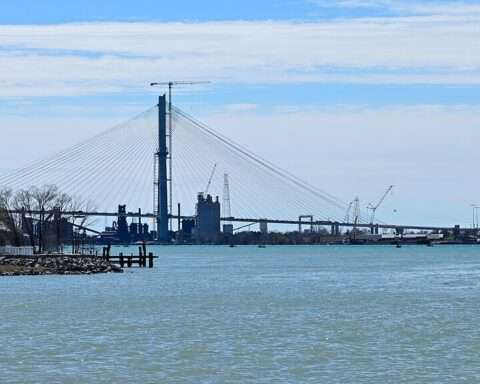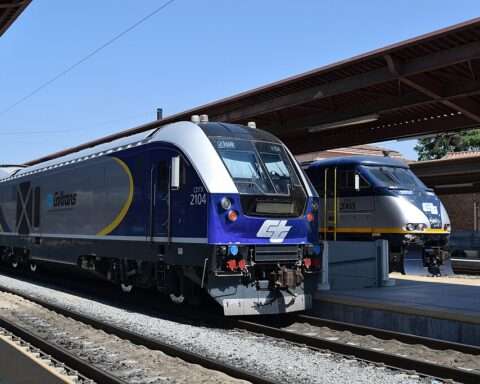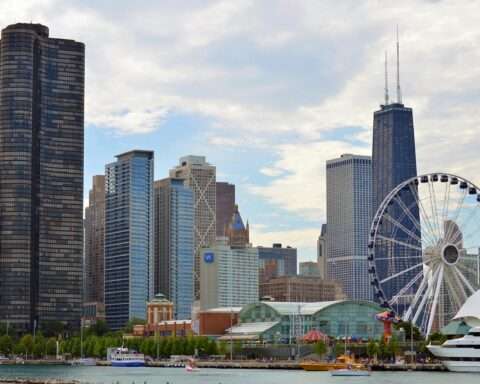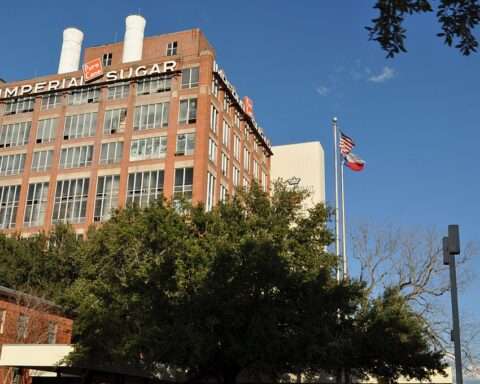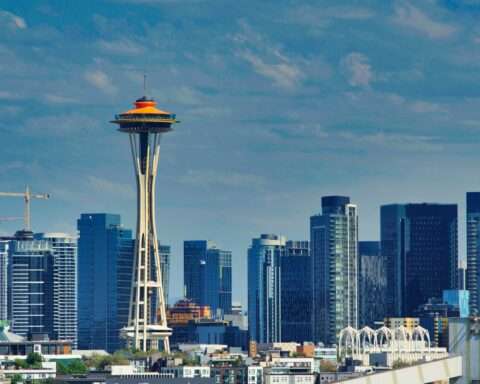A three-year $336 million loan from the U.S. Environment Protection Agency (EPA) will help the city of Chicago replace more than 30,000 lead pipes that deliver water to homes.
The loan, announced Nov. 3, is part of the EPA’s Water Infrastructure Finance and Innovation Act (WIFIA) program. Established in 2014, the program offers low-cost flexible loans to help governments, partnerships and corporations pay for water-related infrastructure projects.
Chicago will receive $112 million per year over the next three years to help pay for replacing lead pipes, estimated to cost nearly $1.5 billion. The city will prioritize replacing water supply pipes that serve single-family homes and small multi-unit buildings when a leak or break in a lead pipe is found.
The loan will help the city toward a statewide goal to replace all lead pipes. In January 2022, the state of Illinois passed a law to require all lead pipes to be replaced within 50 years. The city of Chicago has five other programs to help replace lead pipes.
The WIFIA program awarded its first loan in 2018, and from 2018-23, it has awarded loans for about 115 projects, totaling over $19 billion. Entities can apply for loans to help pay for projects that focus on drinking-water treatment and distribution, improving water quality, increasing energy efficiency at water and wastewater facilities, drought prevention or water recycling.
The WIFIA program is one of many efforts nationwide focused on replacing lead pipelines. The U.S. government has earmarked $15 billion in funding from the Bipartisan Infrastructure Law to replace lead water supply pipes. The EPA reports between 6 million and 10 million lead service lines remain in operation in jurisdictions nationwide.
About 51% of the BIL funding for lead pipe replacement will go toward low-interest loans such as through WIFIA. The remaining funds will go toward communities as grants or to forgive a part of a loan.
As of early November, the EPA has awarded over $2.49 billion in WIFIA loans, according to its database. The largest loan award went to the San Francisco Public Utilities Commission in April. The $369 million funds will help the agency pay for $753 million in upgrades to wastewater and stormwater facilities.
Other communities receiving financial support include the Milwaukee Metropolitan Sewerage District. The MMSD will use the $17 million loan to improve water quality in the Milwaukee harbor and nearby rivers, as announced Nov. 2.
In Fort Lauderdale, Florida, the city received a $120 million loan in October to improve its stormwater management. Funds will go toward neighborhoods that are most likely to flood.
On the West Coast, Monterey One Water in Northern Monterey County in California received a $76 million loan in October. The funds will help the agency expand its water reuse by increasing production at a water purification facility and a groundwater well site. The goal is to drought-proof the water supply.
The EPA anticipates for fiscal year 2023 it has about $7.5 billion in financial support for loan applicants, including $6.5 billion for the WIFIA program. Prospective borrowers can learn more about what types of projects are eligible for funding, such as lead pipe replacement and reducing exposure to PFAS, online.






